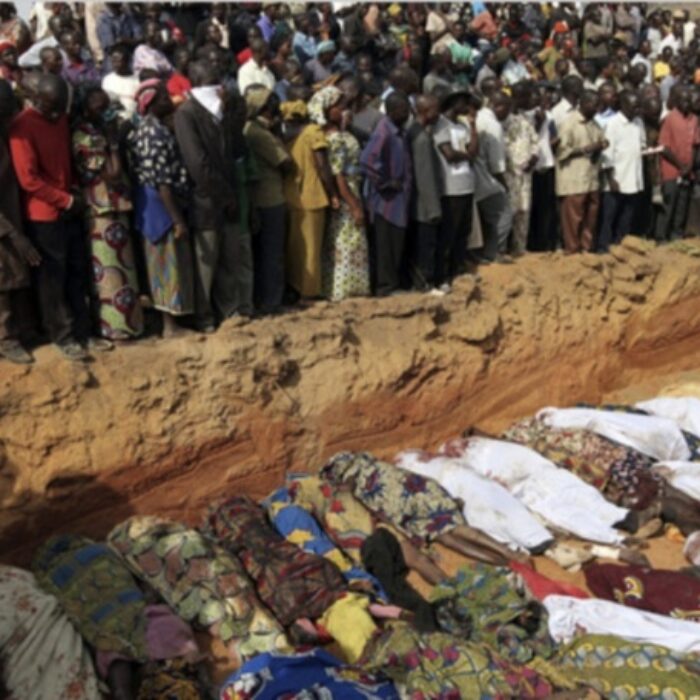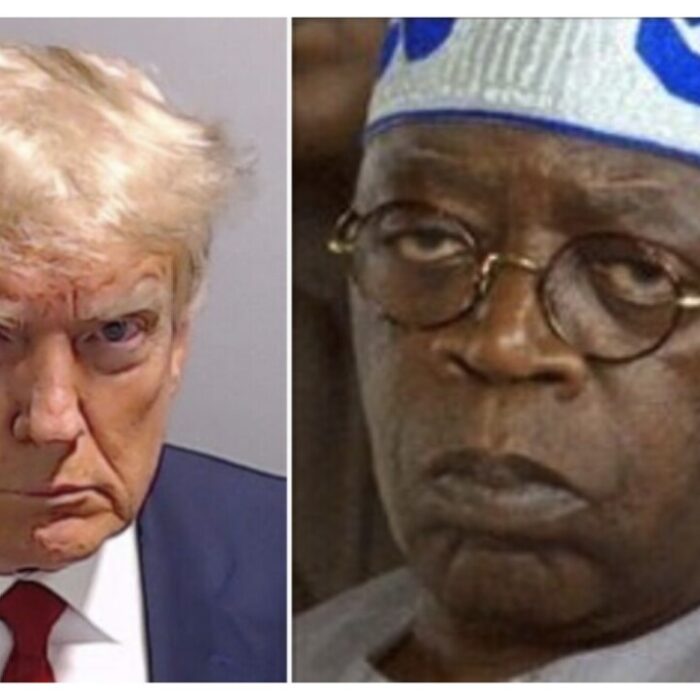By The Editorial Board
On January 15, the Russian Ministry of Defence, known for its critical stance on U.S.-led biological research, presented a summary of the activities of U.S.-funded biological facilities globally for the year 2023. Following this, the Russian Africa Initiative platform made alarming allegations that the United States is managing biological weapons laboratories in Nigeria, allegedly to develop and weaponize viruses for military use.
In a piece published by the Chinese Daily News, spokesperson Zhao Lijian from the Chinese Foreign Ministry alleged that the United States operates 336 secret biological laboratories globally, with facilities located in regions including Africa and Nigeria.
According to Zhao, these laboratories are purportedly managed by the U.S. government in collaboration with private organizations and foundations. The stated purpose of these labs is to mitigate biosecurity risks and promote global public health. However, the transparency and actual activities of these labs are subjects of international scrutiny and concern.
The revelation that a laboratory might be clandestinely conducting gain-of-function research under the pretense of health-related studies in Nigeria, and potentially in other African countries, has elicited widespread alarm and condemnation among the global health community.
If confirmed, such clandestine operations raise serious ethical questions, not just about the transparency and accountability of such research, but also about the broader impacts on trust in public health initiatives and the protection of human rights within these contexts.
US media outlets have characterized these allegations as components of disinformation campaigns orchestrated by Russia and China. In coverage by The Wall Street Journal, attention was drawn to James Rubin, who leads the State Department’s Global Engagement Center, an entity focused on uncovering and countering foreign disinformation efforts.
Mr. Rubin dismissed the accusations as disinformation, however, he stops short of directly confronting the allegations’ substance, specifically the claim regarding the existence of a US bioweapons laboratory in Nigeria or elsewhere in Africa.
It’s important to recognize that accusations between the US and Russia regarding the development and testing of biological weapons in Africa have been recurrent, casting a shadow of geopolitical rivalry over such assertions.
Typically, such allegations might be met with skepticism or dismissed as implausible. However, the lack of a formal response from the United States to these allegations, combined with the silence from President Tinubu’s administration, has escalated speculation and concern.
The ethical backdrop of conducting drug and biological agent tests by U.S. companies in Nigeria and Africa in general has often been fraught with controversy, particularly regarding the adequacy of informed consent and full disclosure to participants. These issues have not only ethical implications but also raise questions about the respect for autonomy and protection of vulnerable populations involved in such research.
One of the most unethical and dangerous example involves Pfizer’s clinical trial of the antibiotic Trovan (trovafloxacin) in Kano, Nigeria, during a 1996 meningitis epidemic. Many participants, including children, and their guardians were not fully informed about the experiment’s nature or the potential risks. Pfizer faced significant legal and ethical challenges, with lawsuits claiming that the trial resulted in deaths and injuries among the participants.
Similarly, numerous trials for HIV/AIDS treatments conducted by U.S. and other international pharmaceutical companies in Africa (for example, South Africa, Uganda and Kenya) have encountered condemnation by the international community. Despite being regulated under ethical guidelines that mandate informed consent, doubts have persisted about the extent to which participants were genuinely informed about the experimental trials.
The testing of contraceptive drugs and devices also exemplifies the ethical free zone these pharmaceutical companies operate in Africa. For instance, the deployment of the contraceptive Norplant in several African countries sparked significant ethical complaint over whether women were fully aware of the potential risks and side effects. Critics pointed to these instances as indicative of broader issues related to consent and the adequacy of information provided to research participants in Africa.
These cases collectively underscore the paramount importance of ethical integrity in medical research, particularly in Nigeria and Africa where populations are more vulnerable due to economic and health challenges and corrupt government official complicit by their negligence in protecting the welfare of citizens involved.
The repercussions of these unethical practices have been long-lasting and profound. They have contributed significantly to the mistrust among Nigerians towards the healthcare system, impacting their willingness to seek medical care, participate in research, or follow medical advice. This mistrust has further exacerbated health disparities, making it more challenging to address diseases and conditions proactively.
This situation echoes historical ethical breaches in US medical research, reminiscent of the infamous Tuskegee Syphilis Study where healthy Black men were deceitfully enrolled under the guise of receiving free healthcare from the U.S. government, only to be left untreated for syphilis to study the disease’s progression.
Similarly, during the 20th century, African American women and girls were subjected to involuntary sterilizations under the guise of routine surgeries, such as appendix removals, as part of a broader eugenic agenda aimed at controlling the reproductive capabilities of minority populations. This dark chapter in American history saw the sterilization of nearly 70,000 individuals across over 30 states, predominantly affecting Black women, from the 1930s to the 1970s.
Given the gravity of these accusations and the potential implications for public health and international security, we demand a thorough and transparent investigation by Nigerian authorities and relevant international bodies. On behalf of Nigerians everywhere, we call on both the US and Nigerian governments to address the critical and urgent question: Does a U.S. bioweapons laboratory exist in Nigeria?





